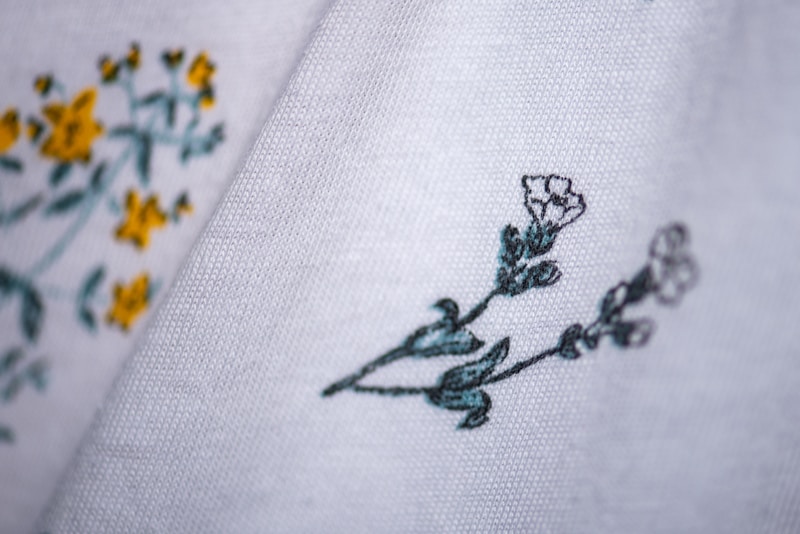Exploring Embroidery Styles for Your Gown: A Guide to Choosing the Perfect Design
Exploring Embroidery Styles for Your Gown: A Guide to Choosing the Perfect Design
Unveiling the Art of Embroidery
When it comes to creating the perfect gown, the intricate details often make the most significant impact. Among those details, embroidery plays a crucial role in enhancing the beauty and sophistication of a garment. Whether you're preparing for a wedding, a prom, or any special occasion, understanding the various embroidery styles can help you choose the perfect design for your gown. In this article, we will delve into exploring embroidery styles for your gown, discussing various techniques, style inspirations, and tips to personalize your dress.
Understanding the Basics of Embroidery
Embroidery is the art of decorating fabric using a needle and thread or yarn. It can be applied to a variety of textiles and garments, including gowns, to add texture, color, and intricate design elements. Different embroidery styles can dramatically change the appearance of your gown, making it unique to your personal taste and the occasion.
Types of Embroidery Styles
There are several types of embroidery styles that you may consider when customizing your gown:
| Embroidery Style | Description |
| 1. Hand Embroidery | This traditional method involves stitching designs by hand, allowing for personalized touches and meticulous craftsmanship. |
| 2. Machine Embroidery | Utilizes advanced machines to create patterns, making it faster and more consistent while offering a wide range of designs. |
| 3. Appliqué | A technique where pieces of fabric are sewn onto the gown to create a layered design, providing depth and dimension. |
| 4. Bead Embroidery | Involves sewing beads onto the fabric, which adds sparkle and elegance, perfect for evening gowns or formal wear. |
| 5. Stencil Embroidery | Uses stencils to create specific patterns, often economical for larger-scale designs and popular in ready-to-wear garments. |
| 6. Digital Embroidery | This modern approach utilizes computer software to design and execute complex patterns, offering precision and a plethora of options. |
Choosing the Right Embroidery Style for Your Gown
Here are some factors to consider when selecting the most suitable embroidery style for your gown:
1. OccasionThe event you're attending plays a significant role in determining the embroidery style. For instance, a wedding gown may benefit from delicate hand embroidery and beadwork, while a prom dress might incorporate brighter colors and bolder patterns.
2. Fabric ChoiceThe type of fabric affects how embroidery looks and is applied. Lighter fabrics such as chiffon and silk require fine embroidery, while heavier fabrics like satin and taffeta can support more elaborate designs.
3. Personal StyleYour individual style should be reflected in your gown. Consider whether you prefer a classic, minimalist approach or a more extravagant, detailed look. Browse various style inspirations to find what resonates with you.

Popular Embroidery Inspirations
While choosing your embroidery style, it’s helpful to gather inspiration from various sources. Here are some popular trends to consider:
1. Floral EmbroideryFloral motifs are timeless and can be adapted to any gown style. Whether you opt for subtle, tone-on-tone flowers or vibrant, detailed blooms, floral embroidery adds a romantic touch.
2. Geometric PatternsModern gowns are often enhanced with geometric embroidery, providing a clean and stylish look. This design can complement minimalist gowns wonderfully.
3. Vintage DesignsTake inspiration from past eras with vintage embroidery. Art Deco and Victorian styles can infuse your gown with nostalgia and sophistication.
4. Monograms and Personal ElementsIncorporating your initials or a special date into the embroidery offers a personal touch to your gown. This detail can make it a cherished keepsake.
Working with an Embroiderer
Once you have decided on an embroidery style, collaborating with a skilled embroiderer can make all the difference. Here are some tips for working together effectively:
1. Communicate Your VisionShare your ideas, preferences, and any reference images with your embroiderer. Ensure they understand the overall aesthetic you want to achieve.
2. Discuss Budget and TimelineEmbroidery can range in cost based on the complexity and time required. Be open about your budget and discuss realistic timelines to ensure your gown is ready for the occasion.
3. Review SamplesBefore committing to a design, ask for samples of the embroiderer's previous work. This will help you gauge their style and quality.
Maintenance of Your Embroidered Gown
Once you've created your dream gown with stunning embroidery, you need to ensure it stays beautiful over time. Here are some maintenance suggestions:
1. Dry CleaningEmbroidery can be delicate, especially when adorned with beads. Opt for professional dry cleaning instead of washing at home to preserve its integrity.
2. StorageStore your gown in a cool, dry place. Use acid-free tissue paper to help prevent wrinkles and potential damage to the embroidery.
3. Avoid Direct SunlightDirect exposure to sunlight can fade the colors in your embroidery. Keep your gown away from bright light when not on display or during storage.
Conclusion
In conclusion, exploring embroidery styles for your gown offers an exciting opportunity to express your personal style and enhance the beauty of your outfit. By understanding the various embroidery techniques available, considering the occasion, and collaborating effectively with an embroiderer, you can create a gown that is truly unique. Remember to maintain your gown properly to ensure it remains as stunning as the day you first wore it. Happy gown designing!
For any further inquiries about embroidery or gown customization, don't hesitate to reach out to experts or explore more online resources to enrich your understanding and creativity!
